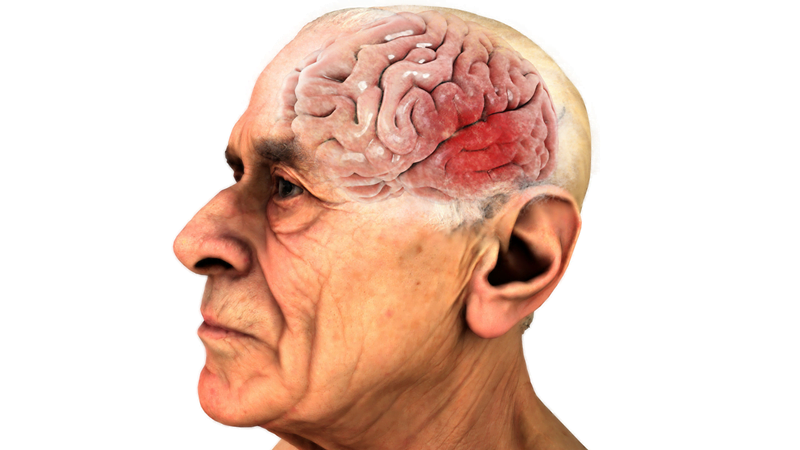
What’s the problem with aging?
The problem with aging is that it is accompanied by both physical and psychological problems. As we age, we become more susceptible to developing illnesses and infections. Furthermore, we start to experience cognitive decline.
According to an article on Pubmed Central that discusses aging. It says that “Aging is characterized by a progressive functional decline at the molecular, cellular, tissue, and organismal levels. As an organisms age, it becomes frail, its susceptibility to disease increases, and its probability of dying rises. In humans, age is the primary risk factor for a panoply of diseases including neurodegeneration, cardiovascular disease, diabetes, osteoporosis, and cancer.”
Aging not only does it increase our risk of developing all manner of diseases it also affects our mental health.
According to a study that was published in April 2018, titled: Human Hippocampal Neurogenesis Persists throughout Aging, “the findings suggest older adults remain cognitively and emotionally intact.” Because their ability to produce new neurons in the brain does not decline. In fact, according to the lead researcher, Dr. Maura Boldrini, elderly people produce as many neurons in the brain as young people.
Neurons are nerve cells in the brain that are responsible for processing and transmitting information to other nerve cells in the body. This communication is possible because all the neurons in the body are connected to one another.
According to Dr. Boldrini explained the reason why elderly people start to experience a decline in cognitive and brain function has nothing to do with the production of neurons in the brain, but with the flow of blood to the neurons. He discovered elderly people, unlike younger people, experience what is known as vascular aging, which has to do with the formation of blood vessels. The research also revealed that there was a strong correlation between cognitive decline and neuronal disconnection.
What happens is with age, the blood vessels lose their elasticity and therefore the heart has to work harder to pump blood to the brain and other parts of the body. But when the neurons in the brain do not get sufficient blood and there is a reduced neuron-to-neuron connectivity, the mind begins to deteriorate.
But this is just one dimension of aging known as psychological aging, there are other dimensions of aging. These include chronological aging, biological aging, and social aging.
Biomedical gerontologist and co-founder of the SENS Research Foundation, Aubrey de Grey believes that it is possible for a person to live for more than 200 years. It does sound impossible, but the 54-year-old researcher believes that by ending biological aging through preventative maintenance, a person can indeed live as long as Methuselah.
Focus on health and not longevity to address aging
He states that: “People are understanding that diseases of old age are not really diseases: They are aspects of aging, the side effects of being alive. If you want to cure them, what you’ll have to cure is to be alive in the first place-but you can’t actually do it. So we’ll have to take a preventative maintenance approach. That means that we’ll have to identify the various types of molecular and cellular damage that the body does to itself as a side effect of its normal metabolic operation. Once you’ve identified them, which has already been done, you have to find a way to repair that damage and prevent it from developing into a pathology of old age. “ Ref.
His research focuses on repairing the damage that accumulates as we get older. The idea is to deal with the problem before it causes a life-threatening disease. De Grey explains that he focuses on health and not longevity.
Getting sick is what’s wrong with Aging!
De Grey states that “Longevity is a side effect of health. We are not going to have anybody living a long time in a poor state of health.” He explains, what kills people is ill-health. But if you are healthy, you can live longer. He points out that “the fixation on the question of longevity is a distraction.”
If we all live longer won’t we run out of space?
During an interview when asked how we can live longer, De Grey responds by saying that it “depends on how much longer we can keep people healthy.” But this then brings about the question of overpopulation. If everyone is healthy and no one is dying, this poses a huge problem because the earth as it is right now is straining to sustain the billions of people that already exist. Where will we get the additional resources to sustain humans living 200 or more years?
This is what Grey says about the issue of overpopulation.
“Overpopulation is the single biggest concern that people raise, and I have basically three levels of answers to these questions. First, the answer is specific to the individual question. So in the case of overpopulation, essentially I point to the fact that fertility rates are already plummeting in many areas. And people often forget: Overpopulation is not a matter of how many people there are on the planet but rather the difference between the number of people on the planet and the number of people that can be on the planet with an acceptable level of environmental impact, and that second number is of course not a constant; it’s something that is determined by other technologies.
So as we move forward with renewable energy and other things like desalinization to reduce the amount of pollution the average person commits, we are increasing the carrying capacity of the planet, and the amount of increase that we can expect over the next, say, 20 years in that regard far exceeds what we could expect in terms of the trajectory of rising population resulting from the elimination of death from aging. So that’s my main answer.
The second level of answer is at the level of sense of proportion. Technology happens or doesn’t happen, whatever the case may be, and maybe the worst-case scenario is that we will end up with a worse overpopulation problem than what we have today.
It may mean fewer kids
What does that actually mean? It means we’re faced with a choice in a post-aging world, in a world where the technology exists – a choice between either, on the one hand, using these technologies and having more people and having fewer kids than we would like or, on the other hand, letting stuff go on the way it is today, which involves not using technology that will keep people healthy in old age and therefore alive.
Ask yourself, which of those two things would you choose? Would you choose to have your mother get Alzheimer’s disease or to have fewer kids? It’s a pretty easy choice, and people just don’t do this.
We have a right to technology that can make us healthy
The third level is perhaps the strongest of all, which is that it’s about who has the right to choose. Essentially if we say, “Oh, dear, overpopulation, let’s not go there. Let’s not develop these technologies”. Then what we are doing as of today is we are delaying the arrival of our technology. Of course, it will happen eventually. The question is how soon? That depends on how hard we try.
If we know that, then what we’re doing is we’re delaying the arrival of the technology. Thus condemning a whole cohort of people of humanity of the future to the same kind of death and disease and misery that we have today in old age. When in fact we might have relieved that suffering had we developed the therapies in time.
I don’t want to be responsible for condemning a vast number of people to death. I think there’s a strong argument that we should get on developing these technologies as quickly as we can.” Ref.
If we live longer how will we pay the pension and have full employment?
De Grey states that “people always panic about paying pensions to people that live longer. But why would you need a pension if you’re healthy? Even the very concept of work won’t exist in the same way, because we’ll probably have more and more automation.”
Aubrey de Grey believes that the person who will live up to 1000 years has already been born. He believes in the next 20 years science will have discovered a way to improve. Perhaps even perfect anti-aging therapies. As it is, researchers have already discovered a molecule that is capable of fighting the effects of aging. They have also found that stem cell therapy can fix the issues of cell loss.
This is one area Grey says his foundation is focusing on. “……. its stem cell therapy. That’s what we do. We preprogram cells in the laboratory into a state where you can inject them into the body. They will then divide and differentiate to replace themselves. The body is not replacing them on its own. And stem cell therapy for Parkinson’s disease is looking very promising right now.” Ref.
Grey believes that aging is an engineering problem and not a biological problem. His goal is “to undo the damage that accumulates during life.” He believes it can be achieved through:
- regenerative medicine
- preventative maintenance and
- improved, anti-aging treatments
Author’s note
In closing, I wrote this article to share Grey’s voice. In particular, issues and arguments that are surrounding the topic of aging and longevity. You might be like me. You may want to find ways to stop aging and enjoy better health. If so, I highly recommend using the support of Sisel’s AGE Pill. At the time of writing this article, I am unaware of any other natural anti-aging supplements that are as powerful as Sisel’s AGE Pill.
But before you pop a pill, make the diet and lifestyle changes necessary to slow aging. I mean if you are sitting on the couch eating potatoe chips and smoking why would you bother?
Last Updated on March 27, 2023 by Katie Sisel Distributor




